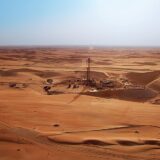
BASF commits to Scope 3.1 emission targets, advances net zero path
BASF SE, a global leader in chemical production, has taken a significant step towards achieving net zero emissions by committing to new targets for Scope 3.1 emissions. This announcement was made during a recent investor and analyst update in Ludwigshafen, Germany, where Dr. Martin Brudermüller, chairman of the Board of Executive Directors, and Dr. Dirk Elvermann, chief financial officer, discussed the progress in implementing the corporate strategy introduced in 2018.
BASF’s strategy emphasises organic growth, with around 60% of its spending from 2018 to 2022 allocated to capital expenditures and research and development. Brudermüller highlighted the board’s focus on shareholder returns and attractive dividends. Despite challenging conditions in 2020 and 2022, BASF has maintained or increased its dividend in three of the past five years, with a total payout of EUR15.8 billion (USD17.0 billion) and an average yield of 5.6% per year. The company’s robust cash generation, averaging USD7.7 billion (USD8.3 billion) annually in operating activities and EUR3.4 billion (USD3.6 billion) in free cash flow over the past decade, has underpinned these dividends.
In the past five years, BASF has strategically divested businesses totaling EUR5 billion (USD5.3 billion) in sales and acquired businesses worth EUR4 billion (USD4.3 billion), focusing on innovative growth sectors.
A key element of BASF’s 2018 strategy was transforming into a customer-focused organisation. Elvermann explained that BASF is now taking further steps to adapt the steering of its individual businesses, combining the benefits of a differentiated approach with the advantages of the Verbund and its integrated structure. This will involve adjusting business models and processes, supported by adapted IT systems and governance frameworks. For instance, Battery Materials and Coatings within the Surface Technologies segment, as well as Agricultural Solutions, will gain more autonomy while retaining the benefits of integration.
Verbund business management
BASF will continue to manage its Verbund businesses—Chemicals, Materials, Industrial Solutions, and Nutrition & Care segments—along value chains, focusing on resource efficiency and integrated production. The company will also attach sustainability attributes like product carbon footprint and recycled content to its products.
New key performance indicators (KPIs)
Starting January 2024, BASF will shift its KPIs to emphasise EBITDA before special items and cash flows, while maintaining return on capital employed (ROCE) as a mid-term KPI. Differentiated steering will introduce new KPIs for operating divisions, with industry-specific KPIs for single-industry-focused businesses and value chain-based KPIs for those integrated into the Verbund.
BASF has set ambitious EBITDA margins before special items, aiming for 17% over the cycle for Verbund businesses, over 30% for Battery Materials by 2030, over 15% for Coatings in the midterm, and over 23% for Agricultural Solutions in the midterm.
Progress on climate neutrality
BASF provided an update on its journey to climate neutrality, building on its 2018 goal of climate-neutral growth. In March 2021, the company set a 25% reduction target for Scope 1 and 2 emissions by 2030 compared to 2018, with a net zero goal by 2050. BASF is focusing on renewable energies and carbon abatement technologies to achieve these targets.
Setting Scope 3.1 emission reduction targets
BASF aims to reduce its specific Scope 3.1 emissions by 15% by 2030 compared to 2022, from 1.57 to 1.34 kilograms of CO2 per kilogram of raw material purchased. Brudermüller emphasised the company’s commitment to improving the product carbon footprint and working with customers and suppliers for cost-efficient and environmentally friendly solutions. BASF’s long-term ambition is to achieve net-zero Scope 3.1 emissions by 2050.










.jpg)
